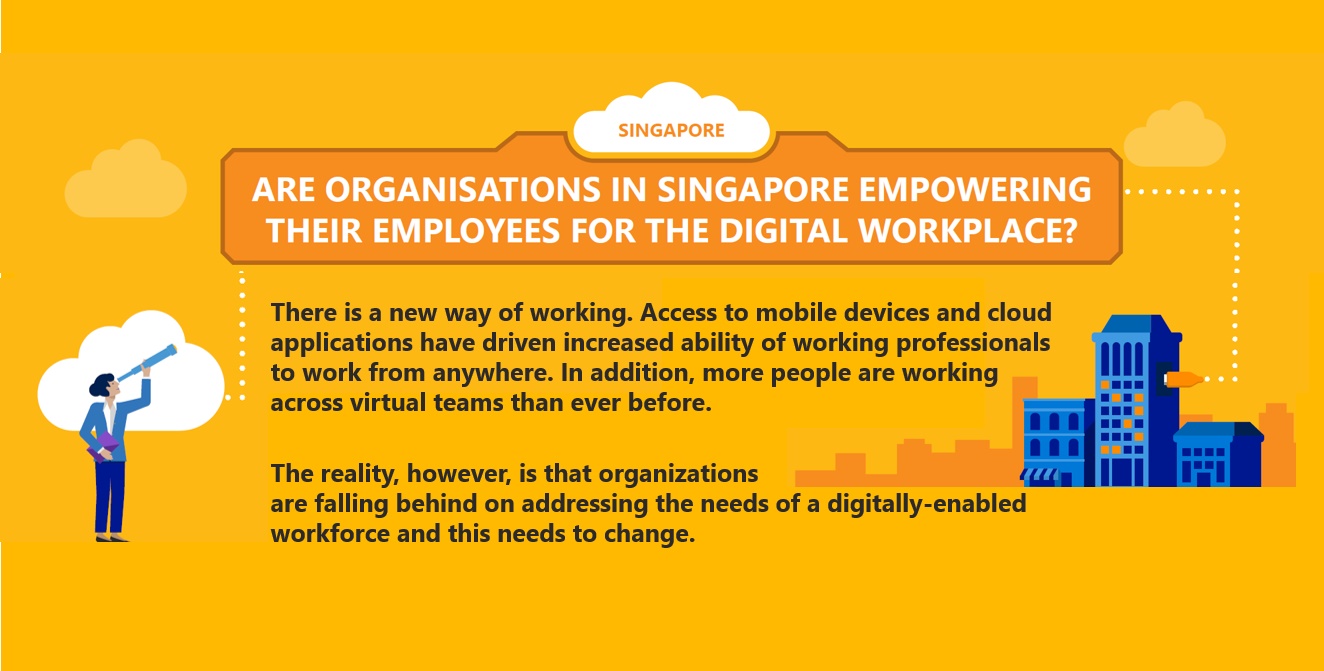62% consider themselves mobile workers today yet only 37% feel empowered by their organisation to embrace the demands of the digital workplace
Singapore, 14 June 2017 – Microsoft today unveiled findings of its Asia Workplace 2020 Study[1], where it found that employees in Singapore do not feel empowered to embrace the demands of the digital workplace.
While 62% of Singapore respondents consider themselves to be mobile workers and spend at least 20% of their time working outside of their offices, only 37% feel empowered by their organisation’s culture and managers to be able to work together productively and collaboratively. In addition, only 26% of respondents agree that their organisation is committed at a leadership level to ensure every employee is included in closing the digital skills gaps within the workforce.
The Study, which involved close to 4,200 working professionals from 14 markets in Asia, sought to understand shifting employee behaviours and gaps in the workplace when it came to productivity, collaboration and flexi-work practices. This included 307 respondents from Singapore.
“As Asia primes itself to become the most connected market with more than half of all mobile connections originating from the region by 2021[2], organisations need to rethink how they empower their workforce with the right culture, policy, infrastructure and tools to maximise their potential. This means enabling collaboration from anywhere, on any device. However, it is also critical for business leaders to evaluate and implement changes to counter cultural and management challenges that are hindering employees to work seamlessly from wherever they are, which will in turn, hinder an organisation’s growth and progress in the digital age,” said Kevin Wo, Managing Director, Microsoft Singapore.
A Digitally Savvy Workforce is Key to Digital Transformation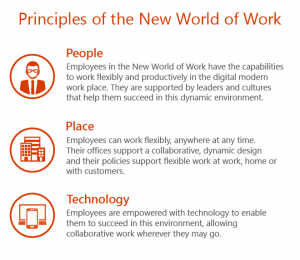
An earlier version of the Study conducted in 2015 found that 39 out of 100 respondents in Singapore were ready for the New World of Work, whereby organisations had the right People, Place and Technology principles in place to enable a productive, collaborative and innovative workforce. This year, 44 out of 100 respondents felt so, indicating that organisations in the market are slightly more equipped, although more can be done to move the needle.
But beyond People, Place and Technology factors, the rise of the 4th industrial revolution has also accelerated the pace of transformation. A recent Microsoft Asia Digital Transformation Study[3] conducted in late 2016 found that ‘Empowering Employees’ is the number three digital transformation priority among Singapore’s business leaders. On the other hand, lack of a digitally skilled workforce was the number one barrier in their digital transformation journey.
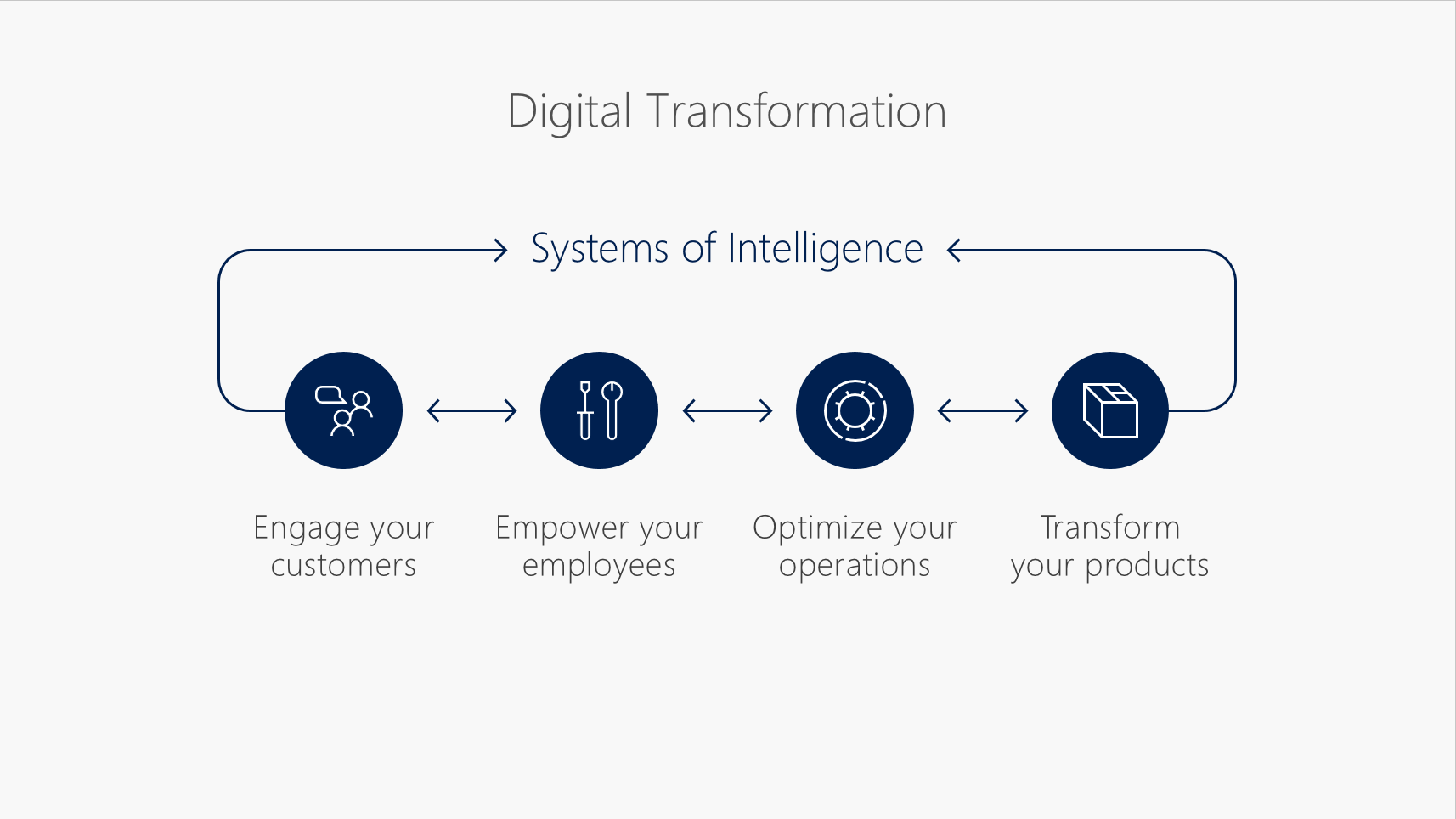
New Work Styles and Organisational Conflicts Need to Be Addressed
It is evident that mobile professionals in the market are embracing flexi-work today, and organisations should look at new workplace practices, especially with the impeding influx of digital natives (born after 2000) entering the workforce for the first time.
Majority of the respondents (80%) value work-life integration today, where the boundaries of work and life have blurred, but have enabled mobile professionals to be able to collaborate and work virtually.
The Study also found that organisations need to address several structural challenges within the workplace to ready themselves for the digital age, as well as flexi-work practices:
- Organisation’s Leaders are a key enabler to drive flexi-work practices in the workplace: Only 26% agree that their organisation’s leadership is committed in bridging the digital skills gap in the workplace.
- Organisational culture is important: Only 23% agree that their organisation has invested in culture development through training and development led by HR
- Access to newer, data-centric technologies to enhance collaboration and productivity: Only 21% feel that their organisation has invested in analytics and data tools to help them make informed and timely decisions; only 22% agree that their organisation has given them tools to simplify workflows
New World of Teams Requires New Approaches
Workplace shifts have undeniably resulted in new ways of work, where technologies have enabled increased collaboration between individuals and teams across geographies and groups. However, the Study found that there were certain gaps today that hindered collaborative and productive outcomes from teams.
The top five challenges included:
- Too many face to face meetings that are taking up productive time (36%);
- Teams are too rigid and not open to new ways of work (29%)
- Teams take too long to respond to internal issues (26%);
- Teams are not open to new initiatives to improve processes (20%);
- Information about the team’s work or project is scattered in multiple places (17%)
However, respondents feel that strong leadership and vision (45%), support from manager (44%) and access to technology tools for collaboration (41%) can help build more collaborative teams.
Access to Newer, Collaborative Technologies will Enhance Productivity
The Study also found that respondents are seeking better devices to help them become more productive at work. Beyond hardware requirements, 34% hope to have access to information and data on mobile devices, 26% wish for cloud-based productivity tools and 21% hope for real-time collaboration capabilities.
When asked about emerging technologies that will help build better work environments by 2020:
- 48% think real-time intelligences will help them make informed decisions at work
- 44% believe Artificial Intelligence will be able to help perform tasks independently
- 33% look forward to virtual workspaces that support instant messaging and document sharing
“As the nature of work changes, how employees collaborate and work together will be impacted as well. It is critical for business and HR leaders to seek ways to better empower individuals and remove barriers to collaborate for the digital age, especially when the Study clearly identifies gaps that can be minimized with technology. However, it is also important for businesses to also bridge the leadership and employee gap with more focus on people and culture,” said Wo.
The recently announced Microsoft Teams brings together people, conversations and content, along with the tools that teams need. It’s integrated with familiar Office applications and is built from the ground up on Office 365 and Microsoft’s global, secured cloud.
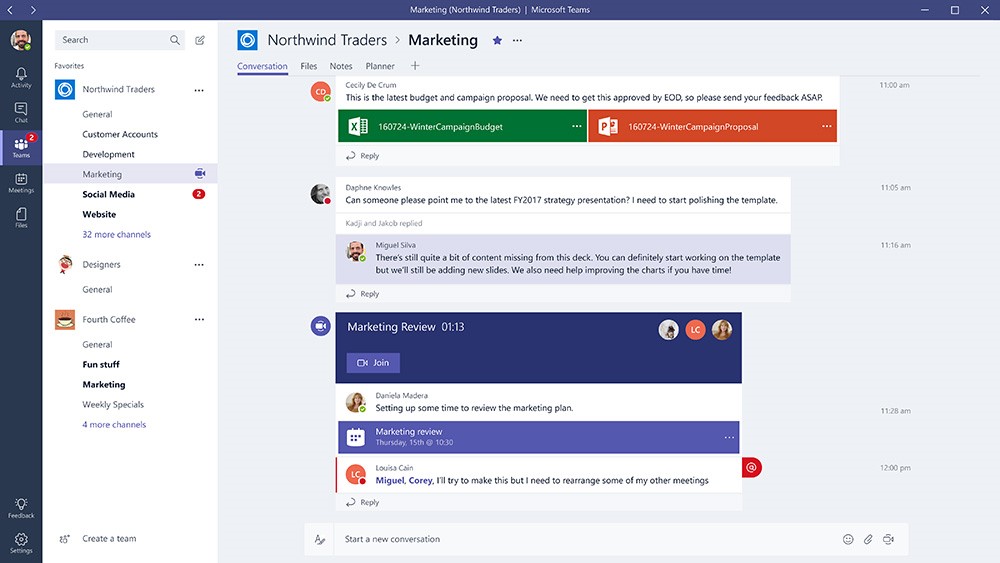
In addition, organisations looking to empower its increasingly mobile workforce while ensuring that their critical data and information are secure should consider combining Office 365 with Microsoft Enterprise Mobility + Security. The suite provides additional protection and expand capabilities to help securely deliver all of your apps to any device, safeguard your corporate assets everywhere, and protect your infrastructure both on-premises and in the cloud.
For more information on how to empower modern workforces in Singapore, visit https://www.microsoft.com/singapore/modern-workplace/
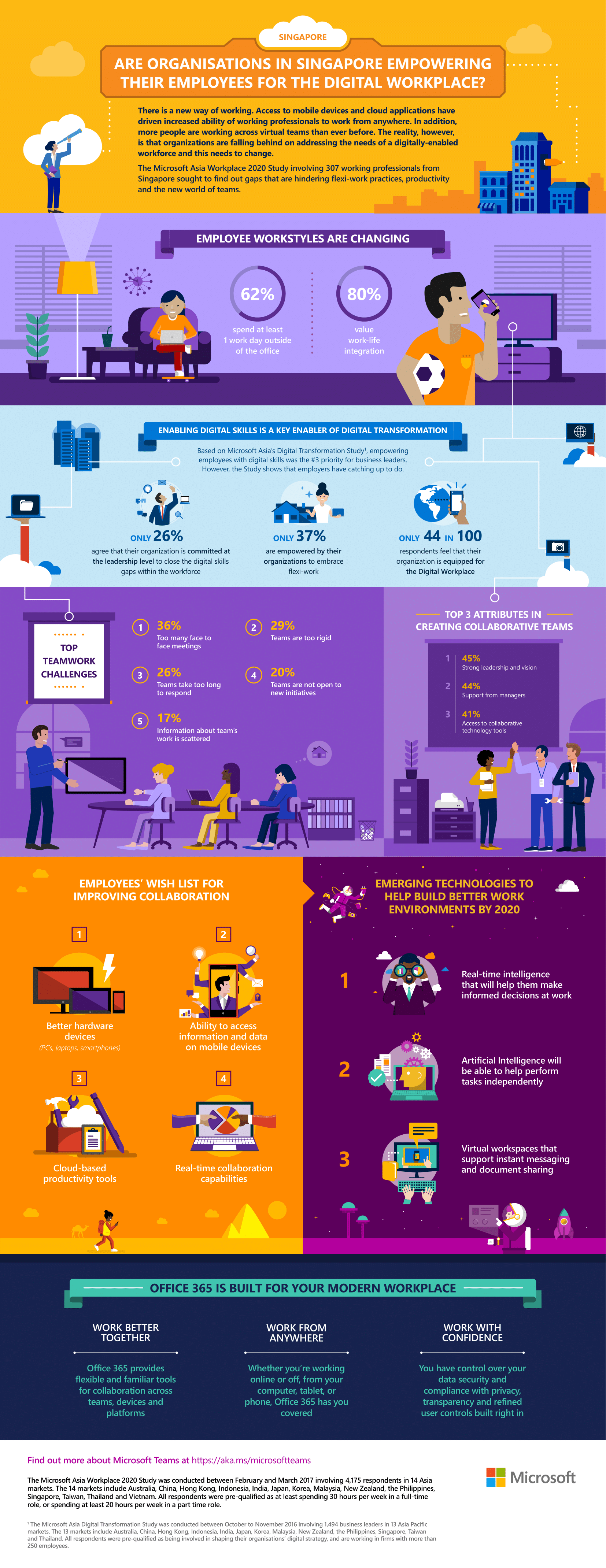
[1] The Microsoft Asia Workplace 2020 Study was conducted between February and March 2017 involving 4.175 respondents in 14 Asia markets. The 14 markets include Australia, China, Hong Kong, Indonesia, India, Japan, Korea, Malaysia, New Zealand, the Philippines, Singapore, Taiwan, Thailand and Vietnam. All respondents were pre-qualified as at least spending 30 hours per week in a full time role, or spending at least 20 hours per week in a part time role.
[2] eMarketer, Most of the World’s Mobile Connections Are in Asia Pacific, https://www.emarketer.com/Article/Most-of-Worlds-Mobile-Connections-Asia-Pacific/1014256
[3] The Microsoft Asia Digital Transformation Study was conducted between October to November 2016 involving 1,494 business leaders in 13 Asia Pacific markets. The 13 markets include Australia, China, Hong Kong, Indonesia, India, Japan, Korea, Malaysia, New Zealand, the Philippines, Singapore, Taiwan and Thailand. All respondents were pre-qualified as being involved in shaping their organisations’ digital strategy, and are working in firms with more than 250 employees.


